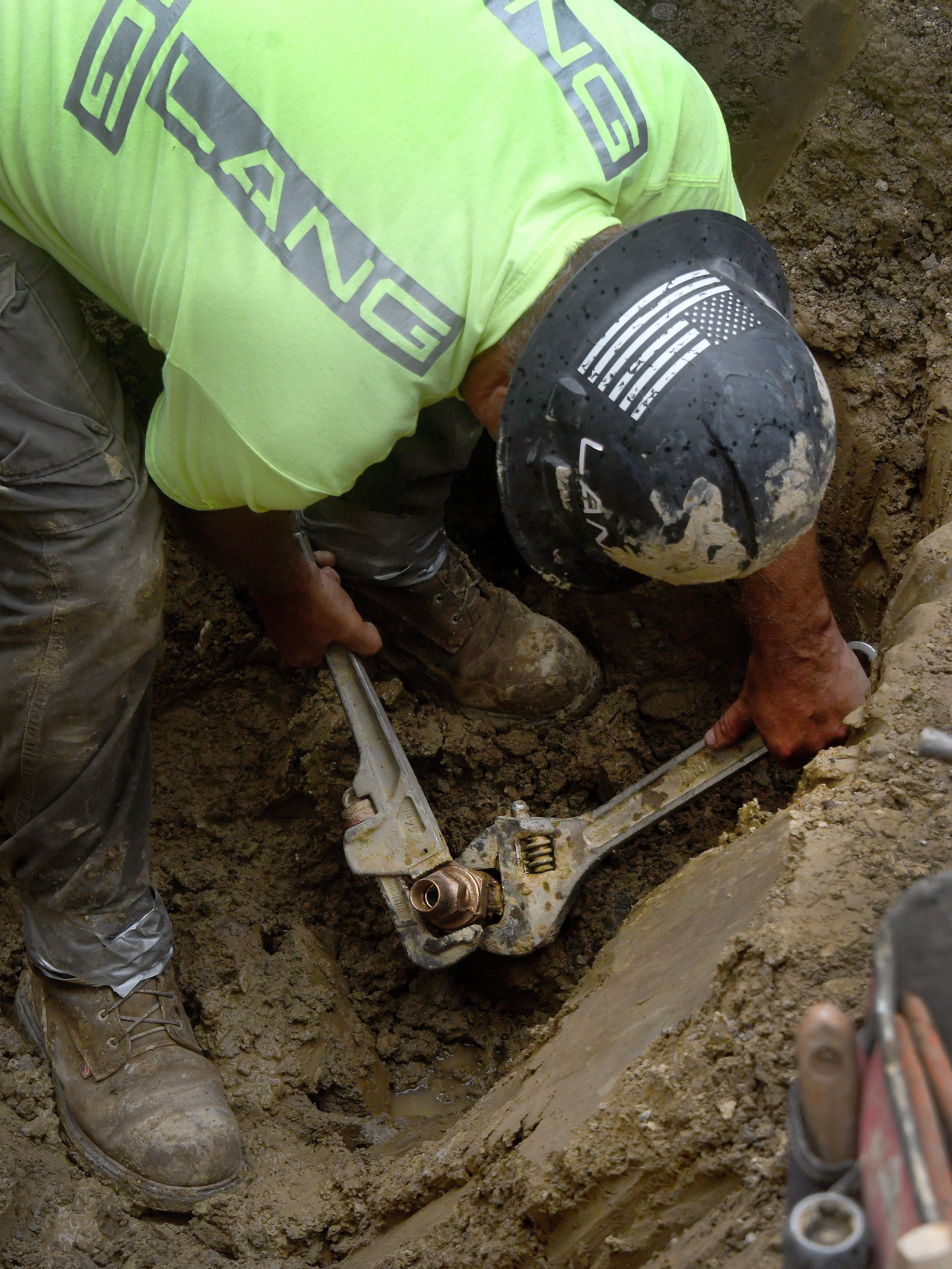State: Flint is ignoring tens of millions of dollars for water pipeline replacement
 Beth LeBlanc
Beth LeBlanc
Flint appears to be ignoring tens of millions of dollars in federal and state grant funds available to it for lead service line replacement, Michigan officials told the city's chief financial officer in a letter sent Wednesday.
The letter from the Michigan Department of Environmental Quality maintains that Flint has drawn only $27.2 million of the $167 million in state and federal funds that have been available to Flint since early 2017. Flint's use of 17 percent of available money comes, state officials said, as city officials are telling contractors they do not have enough money to pay them for more than a partial contract.
“Recently the state was notified that the city is issuing partial contracts to SLR (service line replacement) contractors under the premise that the state is withholding funds from the city. This not accurate,” DEQ Administration Deputy Director Amy Epkey wrote in the letter.
Eighteen months after the federal government authorized the money for Flint, the DEQ “continues to remain concerned by the slow rate of reimbursement requests,” Epkey said.
The delays are due to staffing shortages within the city, ones that have existed “since emergency managers slashed positions,” Flint’s chief finance officer Hughey Newsome said in a statement.
The letter is the latest indicator of the ongoing tension between the state and city as they work to replace the lead service lines that contributed to Flint's lead-contaminated water. Mayor Karen Weaver objected and threatened legal action when Gov. Rick Snyder decided in April to stop providing free bottled water after testing showed tap water quality had improved.
Although the city's water currently meets federal lead action standards, it became contaminated with lead after the city switched its water source to the Flint River in April 2014.
While under a state-appointed emergency manager, Flint stopped using pretreated water from the Detroit area system and joined a regional water authority. It used the Flint River as an interim water source while the Karegnondi Water Authority built its pipeline from Lake Huron into Genesee County.
The failure to treat the river water with corrosion-control chemicals — based on the advice of state water regulators — is blamed for the resulting lead contamination that was first identified in August and September 2015.
The city has worked to replace its estimated 18,000 lead service lines. There is about $100 million in federal money approved in late 2016 available for the water infrastructure upgrades in Flint as well as money from a roughly $87 million settlement in March 2017 from a federal lawsuit filed by the Concerned Pastors for Social Action group in Flint.
Almost 6,630 pipes — about 37 percent of the total lead pipelines — had been replaced in Flint through June 21 as part of the city's Fast Start program. The program is funded with the federal dollars referenced in the DEQ's letter. In total, the city has roughly $167 million at its disposal for water infrastructure improvements.
In its Wednesday letter to the city, the DEQ said it is prepared to make bi-monthly reimbursements to the city, but has received no reimbursement requests from the city for work completed in 2018.
The DEQ’s letter to the city also noted about $1.26 million of a $5 million advance given to the city in 2016 for service line replacement is “unsupported by proper documentation.” And the letter questions whether the city is pricing its service line replacement correctly so it complies with a $5,000 limit per address.
The state has given the city a deadline of Aug. 10 to submit all reimbursement requests for work completed prior to June, and wants a detailed timeline of when work will be completed on various infrastructure projects.
The city is juggling reimbursement requests alongside day-to-day operations with a depleted staff, Newsome said. The finance and public works departments are working to produce a timetable for the reimbursement requests and manage the cost per address to replace the lead service lines.
“Meanwhile, the city is exploring the state’s position expressed in the letter and the proper officials will respond at the appropriate time,” Newsome said.
The state is prepared to assist Flint in meeting the August deadline for reimbursement requests, said MDEQ spokeswoman Tiffany Brown.
"Making sure contractors are appropriately paid by the city for the eligible work they are performing, and the city is then reimbursed in accordance with state and federal laws is a focus for the DEQ," Brown said in a statement.
The state environmental agency has clashed with the city before over the improvement of Flint's water infrastructure.
As recently as June, Flint Mayor Karen Weaver told The Detroit News the DEQ was making “false accusations or lies” about Flint’s compliance with state and federal drinking water laws — accusations she believed were retaliation for her anger at Snyder when he ended the state’s free bottled water deliveries.
eleblanc@detroitnews.com
(517) 371-3661